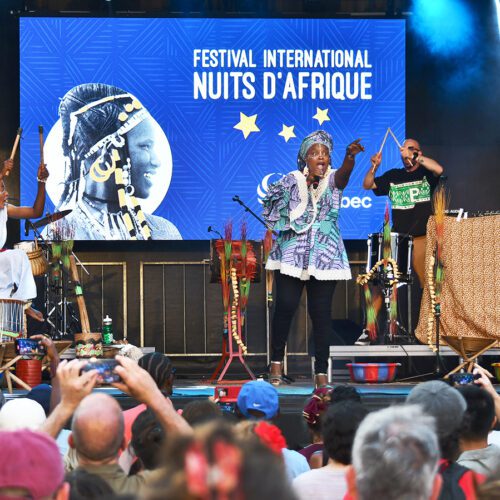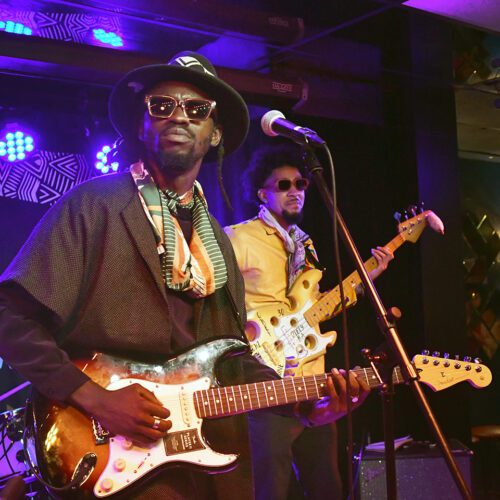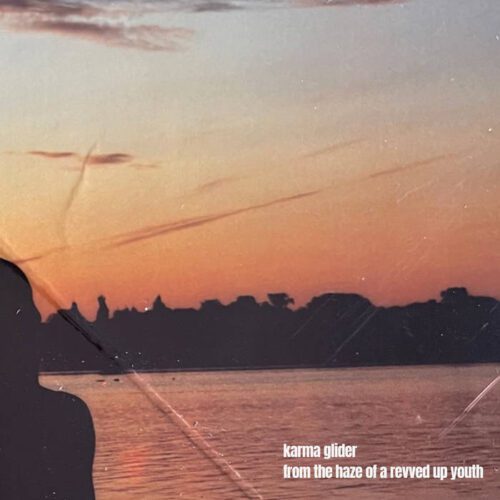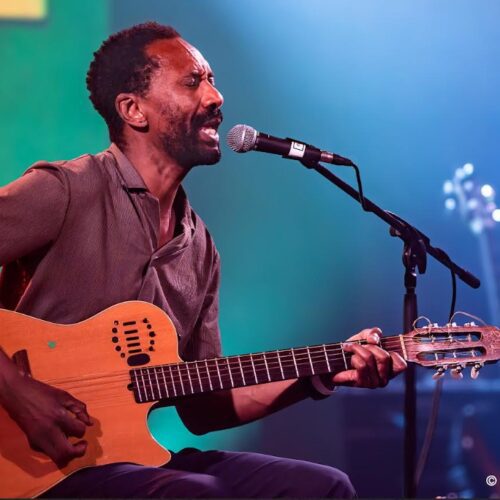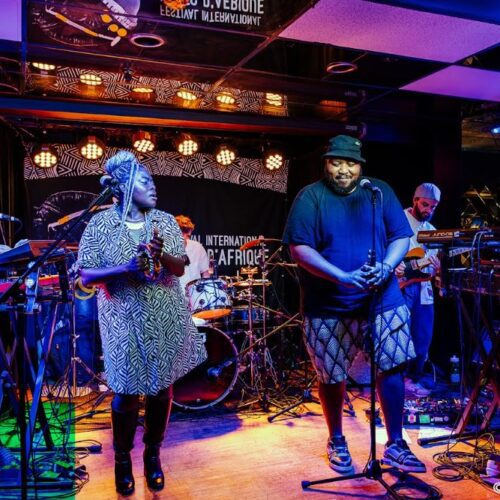Co-produced by Carte Blanche and Chants Libres as part of the FTA, the adaptation of the cinematic masterpiece Hiroshima mon amour into a contemporary opera was an ambitious gamble. To pay tribute to this once award-winning film of great beauty, director Christian Lapointe and his Australian collaborator and composer Rosa Lind turned their attention to the musicality of the work, inviting the Quatuor Bozzini, harp, clarinet, flute and percussion to join the cast in setting Marguerite Duras’s poetry of love and death to note.
The first act opens in the “voice studio”, where performers Yamato Brault-Hori and Ellen Wieser record their dialogue in front of microphones, and where we understand that the adaptation had a surprise in store for us: the character of Marguerite Duras is also present, played by Marie-Annick Béliveau, like a mise en abîme of the creator in the creation. The second act takes place in the dressing room, where the actors undress and re-dress, finding themselves partially naked in the manner of post love. In the third act, the protagonists are played out on stage, reverting to their 1959 selves and replicating their original placements and expressions with astounding accuracy. In the fourth act, we’re in the realm of fiction, with the character of the German lover added to the mix and causing the film to burn, symbolizing the oblivion of this memory, this film and its events, exactly as the story claims. In the fifth scene, the backdrops fall away, giving us a clear view of the musicians. On a bare stage, we witness the discussion with the artists, where the fourth wall no longer exists and we are left with the duet of Yamato and Ellen upstage, slowly fading to black like our memories.
Five acts follow one another in production order, echoing the creation of this mythical film and its dream of peace. Throughout the show, over 400 projections from the film follow one another, both on giant tulles and on screens, multiplying formats and effects, and the live camera blurs the line between film and stage, winking at the present. We leave with a final projection: Stop the genocide in Gaza, the one and only from modernity.
An evening in which memory and oblivion, past and present, intertwine brilliantly, in a delicately dissonant, wonderfully executed score. “In a few years’ time, when I’ve forgotten you and other stories like this one still come up, I’ll remember you (…) like the horror of forgetting”. We hope we won’t forget this one any time soon. To discover or rediscover this masterful work, brilliantly set to music and stage, I recommend that you run to Usine C.





